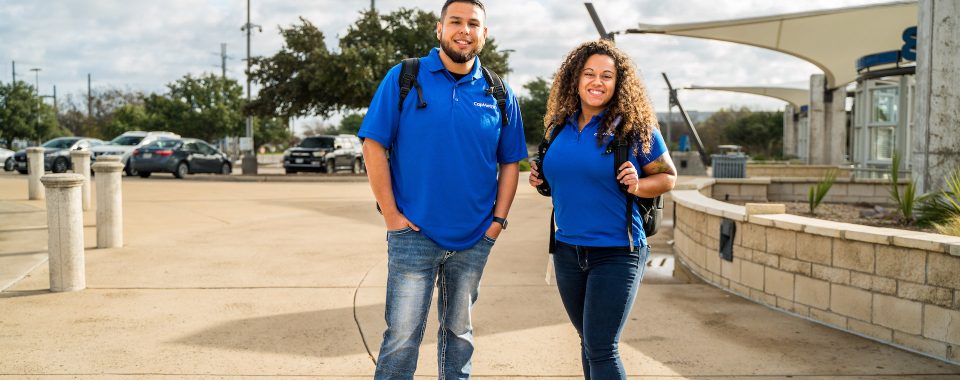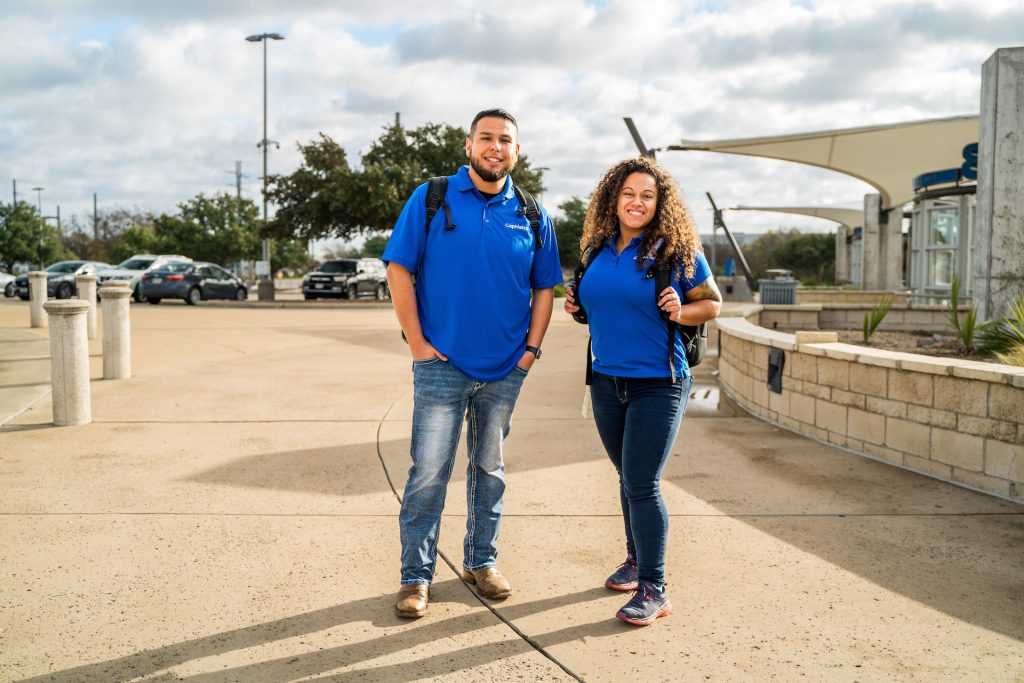
One of CapMetro’s commitments in creating a reimagined Public Safety program was ensuring the agency established and promoted a secure and compassionate transit environment for all. The Community Intervention Specialists (CIS) are integral in ensuring that commitment is experienced throughout our transit network.

As an agency, we understand that some individuals may face challenges that require more specialized assistance than just a ride on our system. We also understand the access for things like social services and how navigating those systems can be complex and confusing, which is why our Community Intervention Specialists connect with individuals who are riding our services and work together with them to guide them through the process. This team is made up of three CapMetro staff members who are trained social workers. They are equipped to help individuals with their own situations and connect them to the resources they need, whether it be housing, mental health, substance abuse, food, or healthcare.
“Every individual we encounter is different and requires a different approach,” said Holly Winge, the team lead for the Community Intervention Specialists. “We develop a specialized approach to every client we connect with so that we can do and get what’s best for them.”
By taking a holistic approach to every client, this team of three works closely together, and that starts every Monday morning with a meeting. From here, they’ll set up their schedules for the week, check statuses of every open case, and figure out how to reach out to individuals that have been internally referred to them, either from our frontline team or the Public Safety Ambassadors.
“We need to make sure we are using our resources best and we talk through any barriers or challenges,” said Winge.
With every person in need, they follow a process that is designed to ensure effective and respectful support. When the intervention specialists first meet someone, either from a referral or by patrolling the system, they get to know them to understand their needs. From there, they’ll begin a specialized process based on what the individual needs, which may involve other community partners, like the Downtown Austin Community Court (DACC).
“The main partnership we have with them is using their address for mail, which is… a huge barrier for a lot of our clients for getting through the whole process of any kind of services,” said Winge.
Our CIS team also partners with the DACC for cases that our team can’t fulfill, or that helps persons with misdemeanors navigate the municipal court to address the charges if they qualify.
“It’s important to have innovative, person-centered approaches,” said Laura Tores, a clinical case manager with the DACC. “And by having the ambassadors and the community intervention specialists available, it helps promote not only trust in the community, but trust for the individuals that are engaging in these services. It also promotes that dignity and humanity in allowing a person to navigate these complex needs and doing so in a way that is supportive and not punitive.”
The CIS team dedicates most of their time to street outreach and working with clients, but they also help train internal staff on Mental Health First Aid. They help our frontline teams understand their role and what they can do if someone is experiencing a mental health crisis.
“We found it’s pretty useful as a de-escalation technique,” said Winge. “It also equips staff with mental health knowledge, identifies misconceptions and what type of help is out there. It helps to lower the barrier for understanding what mental health struggles look like.”
For the Operations teams, they’ve found it useful to have added tools to address challenges they may come across in their day-to-days, and to know more about the Community Intervention Specialist team if they ever come across an individual who may need them.
“It allows us to identify different challenges people might be going through, and also gives us the skills to address those challenges in our work,” said Jacob Levy, a bus service inspector for CapMetro. “I think mental health first aid really gave us a solid foundation, and we know we can reach out to our peers with more confidence for assistance regarding things that we see in our system. It also really gave us, a more holistic view on the challenges that we’re addressing.”
The impact of our Community Intervention Specialist team is profound. From October 2023 through May 2024 alone, our Community Intervention Specialist Team has had over 1,000 contacts with individuals on our system and nearly 200 social service referrals. Since its inception in October 2021, they have placed 47 people into housing and shelters.
It is clear that they are the bridge between transit and social services and are making a profound impact on individuals lives each and every day. As the third branch of the Public Safety Program, these specialists help promote an equitable and holistic approach to society’s most complex problems. CapMetro is continuing to expand and innovate the services we have in our community, and with this team embedded in our agency, they will help further the agency’s mission of making a transformative impact on people’s lives across the Central Texas region.


